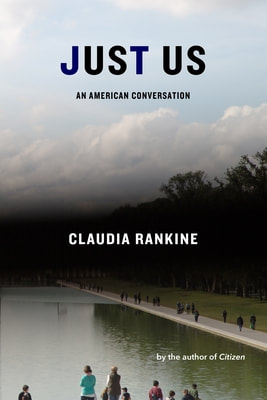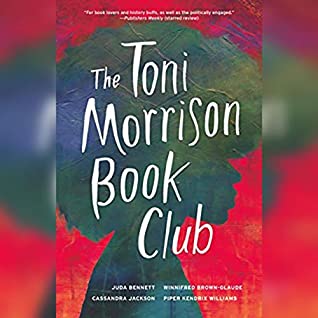 Thanks to Partner NetGalley for the digital ARC of Claudia Rankine’s Just Us: An American Conversation in exchange for an honest review. The book will be published on Tuesday, September 8, 2020. I will need to read Claudia Rankine’s Just Us again. I think it is brilliant and important and thoughtful, but I know that there’s more to absorb, more to contemplate. I read it too quickly this time, wrestled with the format of the e-book (I’m definitely going to buy it in print), and so I know that I missed details, connections, and nuance that would have enriched my reading experience even more. Still, even on a first read, I loved it. As she did in her gorgeous book Citizen: An American Lyric, Rankine uses a mixture of poetry, essays, and images through Just Us: An American Conversation. The book moves between the main pieces and connective pieces that are woven alongside the text, providing sources, in-the-moment fact checks, and further reflection. Rankine uses the intensely personal to explore the universal. She is wrestling with her own experiences as a way to grapple with American experience. She is both keenly aware of when she has been wronged . . . but she’s reflective and vulnerable enough to admit when she wrongs others, too. Her scope is wide ranging. She uses brief meetings with strangers in airports and on planes, longer conversations with friends that puzzle her, and disagreements or moments of dissatisfaction with her husband to explore her topic. She’s aiming to define whiteness, as she does in one of her classes at Yale, to try to figure out what it means to be white and how her own identity relates to that definition. She’s constantly challenging her own assumptions, her friends’ assumptions, small comments that seem to offer a key that will unlock a new insight into race in America. As she did in Citizen, Rankine presents her response in abstract and lyrical poetry, in meditations on things like tennis and college admissions, in social media, in her cancer, in her interracial marriage to a white husband. She’s looking for answers wherever she can. Often, after having written an essay about a conversation with someone, she then shares the essay with that person and shares his/her response. It’s fascinating, a true series of conversations that she’s developing with others and with herself. At one point, a friend critiques what Rankine has written because “there’s no strategy here,” and Rankine replies, “response is my strategy. Endless responses and study and adjustments and compromises become a life” (334). It’s what we all do, on some level, I think (or at least I do!): we respond to what happens and then test our responses, absorbing new information and events and meetings and conversations into our understanding. And then we do it again. This is a book I’ll be thinking about for a long time.
0 Comments
 Thanks to Partner Libro.fm for the digital ALC of The Toni Morrison Book Club in exchange for an honest review. The book is available now. Juda Bennett, Winifred Brown-Glaude, Cassandra Jackson, and Piper Kendrix Williams wrote The Toni Morrison Book Club collaboratively, an extension of their real-world book club and their experiences reading four Toni Morrison novels. Their book, which I listened to via Libro.fm, mirrors some of my favorite things about the best book clubs and buddy reads: it’s both a serious and analytical consideration of Morrison’s work AND an exploration of the ways that her books reflect the book club members’ realities. The diversity of the four authors--the publisher explains that they are “black and white, gay and straight, immigrant and American-born”--is a strength, as each author shares the ways that she (or he) connects to a particular Morrison novel. The Toni Morrison Book Club is organized into a series of essays about The Bluest Eye, Beloved, A Mercy, and Song of Solomon, and the authors’ approaches aren’t always straightforward. So, there are focuses on parenthood, on humor, and on toxic masculinity (among others), rather than just examinations of main themes. I should say, as well, that I’ve read three of the four books discussed--and it’s been a long time for two of them--but I still found the essays to be rich, and there’s enough context provided that I wasn’t lost. Shorter essays connect the main chapters, explaining how the book club members came to write about each topic chosen. Some of these connecting pieces were stronger than others, but I appreciated the details about each journey. I often find my way to true understandings of books through conversation, so to hear that experience reflected through the book felt right. The Toni Morrison Book Club is a timely and serious endeavor, but one that’s also challenging and enjoyable in the ways that the best, real-life book clubs can be. I would definitely recommend the audiobook, since the multiple narrators helped to reflect the four distinct contributors. |
AuthorI'm Jen Moyers, co-host of the Unabridged Podcast and an English teacher. Archives
July 2021
Categories
All
|
Proudly powered by Weebly
 RSS Feed
RSS Feed